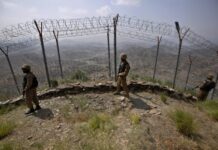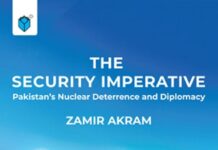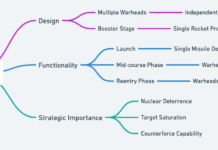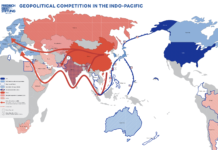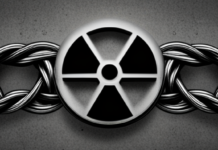Malaika Rizvi
The recent escalation of tensions between Iran and Israel has added to the intricacies of Middle Eastern geopolitics, igniting concerns about regional stability and broader ramifications. As both countries engaged in recrimination and used force against each other, the international community observed disturbing developments, cognizant of the imminent risk of further instability. As two actors that can ill-afford unremitting chaos in the Middle East, Afghanistan and Pakistan expressed serious apprehensions about the crisis. These were shaped and driven by historical and diplomatic factors. Given that both Pakistan and Afghanistan carry strategic significance for South Asia and the Middle East, it is important to analyze their views on this dangerous Middle Eastern conflict.
Afghanistan’s Stance on Iran-Israel Tensions
Afghanistan’s Ministry of Foreign Affairs released a strongly-worded statement in support of Iran’s retaliatory strikes on Israel. The statement called out Israel for its brazen violations of international law, adding that Iran’s retaliatory strikes were legitimate and carried out in self-defense. This reaction was shaped by an intricate blend of historical, geopolitical, and domestic factors. Certainly, Afghanistan has enjoyed cultural and religious bonds with Iran, creating a foundation of mutual understanding and solidarity. These ties have been reinforced by centuries of interaction, trade, and cultural exchanges, fostering a sense of solidarity and affinity. All this forms a strong foundation for alignment between the two countries. Most recently, the two countries deliberated upon expanding their existing trade and economic ties. Afghanistan’s support to Iran, therefore, seems to be a natural extension of their historical relations as well as the growing bonhomie between the Afghan Taliban and the Islamic Republic. Also, Kabul’s support for Tehran’s self-defense refrain is seemingly a deliberate strategic move. Indeed, by standing with Iran, Afghanistan not only seeks to strengthen regional ties but also safeguard its own security interests.
This alignment can also be viewed through a geopolitical lens. As a landlocked country located in a volatile region, Afghanistan has long struggled to ensure its security and stability. Therefore, by aligning with Iran’s viewpoint, Afghanistan may seek to forge a stronger partnership to navigate actual and perceived threats from malign actors, including Israel. This strategic calculus is based on Afghanistan’s historical vulnerabilities to foreign interventions and geopolitical maneuverings.
Additionally, Afghanistan’s domestic political dynamics played a crucial role in shaping its response to the Iran-Israel conflict. The country’s position on Iran-Israel tensions served as a means of consolidating domestic support and rallying public opinion behind the government. In a country marred by internal divisions and external pressures, such expressions of solidarity can serve as rallying points for national unity and cohesion.
Furthermore, Afghanistan’s characterization of Iran’s attack as a defensive action sought to justify and legitimize that country’s military operation against Israel. By openly supporting Iran’s right to defend itself, Afghanistan also underscored the centrality of its own sovereignty. Therefore, this move may also be interpreted as a signal to other regional powers that Afghanistan is not beholden to external pressures and can take independent positions.
That being said, Afghanistan’s overt support for Iran’s actions might further strain its relations with other key stakeholders in the region, particularly the United States. This issue is compounded by the fact that the United States is yet to recognize the Taliban regime. Moreover, all this highlights the complexities of Afghanistan’s foreign policy decision-making and the need for careful navigation amidst competing interests and alliances.
Understanding Pakistan’s Position on the Iran-Israel Conflict
Pakistan’s Foreign Office expressed deep concern regarding the recent escalation of hostilities in the Middle East, particularly following Iran’s retaliatory strikes against Israel. However, in contrast to Afghanistan’s assertive language, Pakistan’s was measured. Whereas the Afghan government endorsed Iran’s right to self defense, Pakistan emphasized the importance of restraint in de-escalating the situation. That being said, Pakistan unequivocally condemned the ongoing war in Gaza as well as the attack on the Iranian Consulate in Syria. What’s more, Pakistan slammed Israel when the latter launched strikes inside of Iranian territory.
Pakistan’s response to the escalating tensions between Iran and Israel is a reflection of its historical, geopolitical, and domestic concerns. These include its historic, deep-rooted relations with Iran and refusal to accept Israel, role as a mediator in regional conflicts, and strategic imperative to uphold stability and peace, Pakistan’s stance underscores the complexities of navigating the volatile geopolitical landscape of the Middle East. Therefore, in the interest of a peaceful Middle East, Pakistan cannot afford a conflagration between Iran and Israel.
Though nuanced and pragmatic, this approach may not appeal to domestic audiences in Pakistan given the country’s renunciation of Israel’s identity as a state. However, this somewhat cautious response can be explained by a combination of geopolitical considerations and dependencies. The conflict happened at a time when Pakistan found itself in a precarious economic situation, as evidenced by its efforts to secure fresh lending from the International Monetary Fund (IMF). Considering these factors as well as the United States’ oversized influence over the IMF, one can argue that Pakistan took a measured, logical position on the issue.
Shared Concerns About Regional Stability
In sum, one could reasonably argue that the positions taken by Afghanistan and Pakistan on the Iran-Israel conflict were in line with their historical, geopolitical, and diplomatic interests. Pakistan’s response, characterized by diplomatic nous and an emphasis on restraint and de-escalation, reflected its longstanding commitment to stability in the region. While Afghanistan’s stance exhibited a more assertive posture, the inclusion of phrases such as “major escalation” and insistence on international intervention to impose a ceasefire also underscored Afghanistan’s concerns about the broader implications of regional instability. These shared concerns speak to the potential effects of a protracted conflict in the Middle East, which both countries will find hard to navigate.
Malaika Rizvi is an International Relations student at the School of Oriental and African Studies (SOAS).
The views expressed in the article are the author’s own and do not necessarily reflect those of Pakistan Politico.




